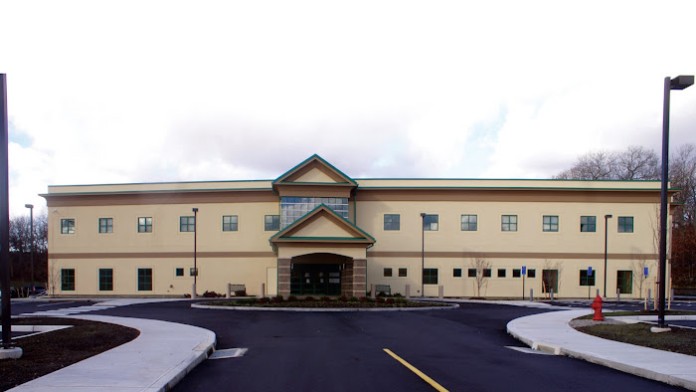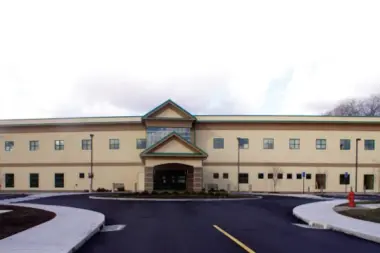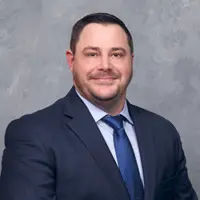want to extend my deepest thanks to Dr. Elias and the entire Willimantic Dental team at Generations. From start to finish, they made me feel cared for—not just as a patient, but as a person. The procedure was completely painless, and they went above and beyond to ensure I ...
About Willimantic
Generations Family Health Center is a private, not for profit mental and behavioral health clinic located in Willimantic, Connecticut. For over 40 years, this organization has shepherded children and adults through some of life’s most monumental challenges, including trauma and addiction. Their multidisciplinary team offers several outpatient (OP) services, including individual, family, and group therapy, dual diagnosis care, and primary care.
Affordable, Inclusive, Judgment Free Treatment
Generations Family Health Center’s mission as a nonprofit is to make treatment accessible for everyone. In service of this, they offer a sliding fee scale for people without insurance who qualify for financial assistance. They also accept Medicaid and most private insurances. I also love that their diverse, multidisciplinary team appears to make a point of making everyone feel welcome, regardless of gender or sexual orientation, race, ethnicity, or background.
“They have helped me medically, and mentally and help me through domestic violence issues,” one client said. “I went from wanting to die and doing drugs to being proud to be clean and working on being a better me.”
A Range of Specializations and Groups
Generations Family Health Center offers multiple group therapies designed to help people better understand their illness and develop healthy coping strategies for long term sobriety and wellbeing.
But unlike some alcohol and drug rehab providers, they cater to specific populations. They offer a group specifically for young women, and others for people who’ve experienced intimate partner violence and other forms of trauma, which I think could be really beneficial. You could share your experiences and learn from others who’ve had similar backgrounds.
Their team has a range of specialties, too. Multiple clinicians specialize in helping people with addiction and other complex, chronic mental illnesses, such as clinical depression, posttraumatic stress disorder, and borderline personality disorder. Several are also trauma informed, meaning they’ve received advanced training to appropriately support people who’ve experienced traumatic events.
Latest Reviews
Rehab Score
Gallery


Accepted Insurance


Other Forms of Payment
Medicaid is a state based program that helps lower-income individuals and families pay for healthcare. Medicaid covers addiction treatment so those enrolled can use their coverage to pay for rehab. When a program accepts Medicaid the client often pays very little or nothing out of their own pocket.
Private insurance refers to any kind of healthcare coverage that isn't from the state or federal government. This includes individual and family plans offered by an employer or purchased from the Insurance Marketplace. Every plan will have different requirements and out of pocket costs so be sure to get the full details before you start treatment.
Self-pay involves paying for treatment out of your own pocket. You can use savings or credit, get a personal loan, or receive help from family and friends to fund your treatment. If you don't have insurance or your insurance plan doesn't cover a specific program, self-pay can help ensure you still get the care you need.
Sliding scale payments are based on a client's income and family size. The goal is to make treatment affordable to everyone. By taking these factors into account, addiction recovery care providers help ensure that your treatment does not become a financial burden to you or your family, eliminating one barrier to care.
Medicare is a federal program that provides health insurance for those 65 and older. It also serves people under 65 with chronic and disabling health challenges. To use Medicare for addiction treatment you need to find a program that accepts Medicare and is in network with your plan. Out of pocket costs and preauthorization requirements vary, so always check with your provider.
Addiction Treatments
Levels of Care
Outpatient Programs (OP) are for those seeking mental rehab or drug rehab, but who also stay at home every night. The main difference between outpatient treatment (OP) and intensive outpatient treatment (IOP) lies in the amount of hours the patient spends at the facility. Most of the time an outpatient program is designed for someone who has completed an inpatient stay and is looking to continue their growth in recovery. Outpatient is not meant to be the starting point, it is commonly referred to as aftercare.
Treatments
Mental health rehabs focus on helping individuals recover from mental illnesses like bipolar disorder, clinical depression, anxiety disorders, schizophrenia, and more. Mental health professionals at these facilities are trained to understand and treat mental health issues, both in individual and group settings.
Programs
Adult rehab programs include therapies tailored to each client's specific needs, goals, and recovery progress. They are tailored to the specific challenges adult clients may face, including family and work pressures and commitments. From inpatient and residential treatment to various levels of outpatient services, there are many options available. Some facilities also help adults work through co-occurring conditions, like anxiety, that can accompany addiction.
Young adulthood can be an exciting, yet difficult, time of transition. Individuals in their late teens to mid-20s face unique stressors related to school, jobs, families, and social circles, which can lead to a rise in substance use. Rehab centers with dedicated young adult programs will include activities and amenities that cater to this age group, with an emphasis on specialized counseling, peer socialization, and ongoing aftercare.
Clinical Services
Cognitive Behavioral Therapy (CBT) is a therapy modality that focuses on the relationship between one's thoughts, feelings, and behaviors. It is used to establish and allow for healthy responses to thoughts and feelings (instead of unhealthy responses, like using drugs or alcohol). CBT has been proven effective for recovering addicts of all kinds, and is used to strengthen a patient's own self-awareness and ability to self-regulate. CBT allows individuals to monitor their own emotional state, become more adept at communicating with others, and manage stress without needing to engage in substance abuse.
Whether a marriage or other committed relationship, an intimate partnership is one of the most important aspects of a person's life. Drug and alcohol addiction affects both members of a couple in deep and meaningful ways, as does rehab and recovery. Couples therapy and other couples-focused treatment programs are significant parts of exploring triggers of addiction, as well as learning how to build healthy patterns to support ongoing sobriety.
Research clearly demonstrates that recovery is far more successful and sustainable when loved ones like family members participate in rehab and substance abuse treatment. Genetic factors may be at play when it comes to drug and alcohol addiction, as well as mental health issues. Family dynamics often play a critical role in addiction triggers, and if properly educated, family members can be a strong source of support when it comes to rehabilitation.
Group therapy is any therapeutic work that happens in a group (not one-on-one). There are a number of different group therapy modalities, including support groups, experiential therapy, psycho-education, and more. Group therapy involves treatment as well as processing interaction between group members.
In individual therapy, a patient meets one-on-one with a trained psychologist or counselor. Therapy is a pivotal part of effective substance abuse treatment, as it often covers root causes of addiction, including challenges faced by the patient in their social, family, and work/school life.
Nicotine Replacement Therapy (NRT) is a way of getting nicotine into the bloodstream without smoking. It uses products that supply low doses of nicotine to help people stop smoking. The goal of therapy is to cut down on cravings for nicotine and ease the symptoms of nicotine withdrawal.
Trauma therapy addresses traumatic incidents from a client's past that are likely affecting their present-day experience. Trauma is often one of the primary triggers and potential causes of addiction, and can stem from child sexual abuse, domestic violence, having a parent with a mental illness, losing one or both parents at a young age, teenage or adult sexual assault, or any number of other factors. The purpose of trauma therapy is to allow a patient to process trauma and move through and past it, with the help of trained and compassionate mental health professionals.
Staff

Melissa Meyers
Chief Executive Officer

Debra Daviau Savoie
Chief Financial Officer

Michael Steinmetz
Chief Operating Officer

Dr. Danielle Digeronimo
Chief Quality Officer

Dr. Kathy Montague
Chief Dental Officer

Jennifer Mendes, LCSW
Chief Behavioral Health Officer

Dr. Heidi Tucker
Chief Medical Officer
Contact Information
40 Mansfield Avenue
Windham, CT 06226






